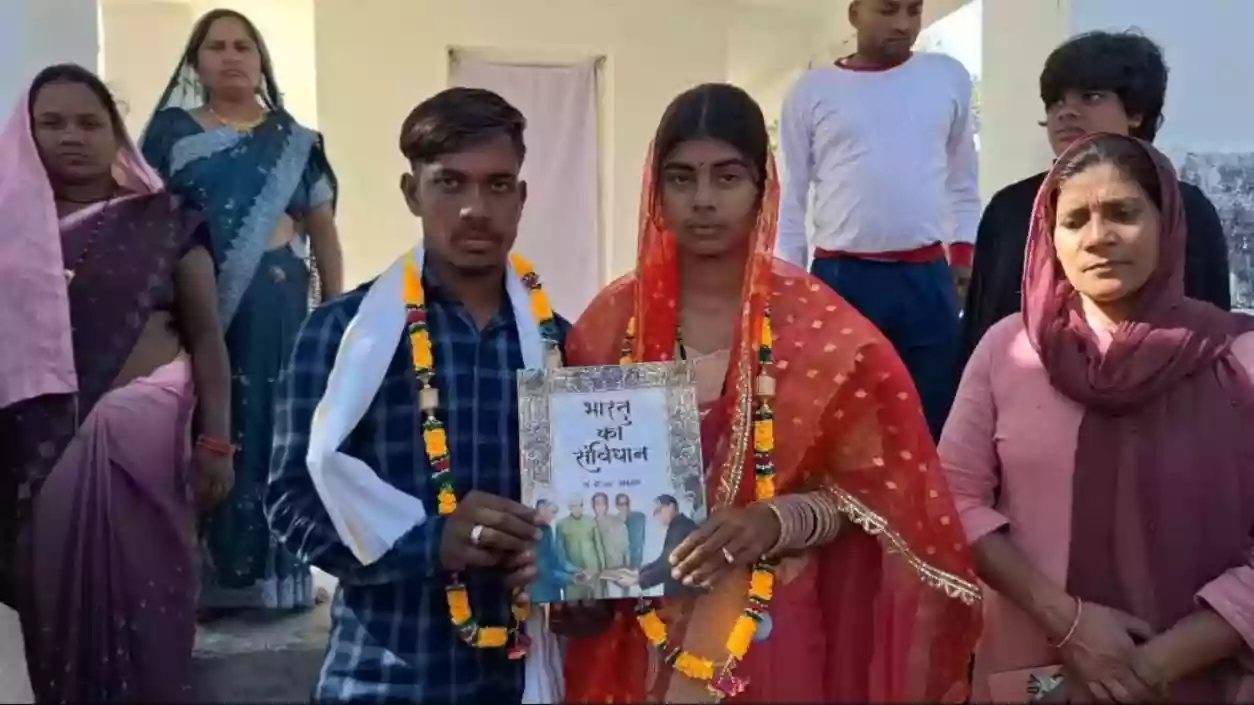.gif)
.gif)

Eman Lahre and Pratima Lahre, a couple from Kapu village in Chhattisgarh’s Jashpur district, recently held a distinctive wedding ceremony that has garnered attention for its deviation from traditional practices. On December 18, the couple tied the knot by taking an oath on the Indian Constitution, marking their commitment to each other through the core values of equality, justice, and liberty. The wedding coincided with the birth anniversary of Guru Ghasidas, the founder of the Satnam Dharma, which is followed by the Lahre family.
The ceremony did not include many of the customary rituals typically observed in Hindu weddings. The couple skipped the “Saat Phere” (seven vows around the sacred fire) and the “Band Baja” (the wedding procession with music), which are hallmark traditions of Indian marriages. Instead, they exchanged garlands in front of a portrait of Dr. B.R. Ambedkar, the chief architect of the Indian Constitution. Holding a copy of the Constitution, the couple pledged their commitment to each other, marking the occasion with a symbolic affirmation of their shared values, including social justice and equality.
The Lahres also chose not to perform rituals such as wearing a “mangalsutra” or applying “sindoor,” which are common in many traditional Hindu weddings. The decision to avoid these practices was partly motivated by the desire to minimize the financial burden often associated with such ceremonies. Eman Lahre emphasized that their decision to have a simple ceremony was made to avoid unnecessary expenditure, with full support and consent from both families.
The wedding has stirred discussions in the region, as it deviated from the usual extravagant wedding ceremonies common in the area. The couple's choice of the Indian Constitution as the basis of their vows has resonated with many, especially in a region where traditional wedding customs are deeply entrenched. Attendees, including family members and community members, expressed their blessings and support for the couple's decision, with many viewing it as a meaningful and socially conscious approach to marriage.
This wedding marks a broader shift in Chhattisgarh, where growing numbers of people are reconsidering traditional wedding customs in favor of simpler, more personal celebrations. The Lahres’ decision highlights a growing trend of prioritizing personal values and social justice over traditional rituals and financial expenditure. The ceremony reflects a modern approach to marriage in a region where such customs have been the norm for generations. The event also underscores the influence of social and political values, with the Indian Constitution serving as a central symbol for the couple’s commitment to each other.